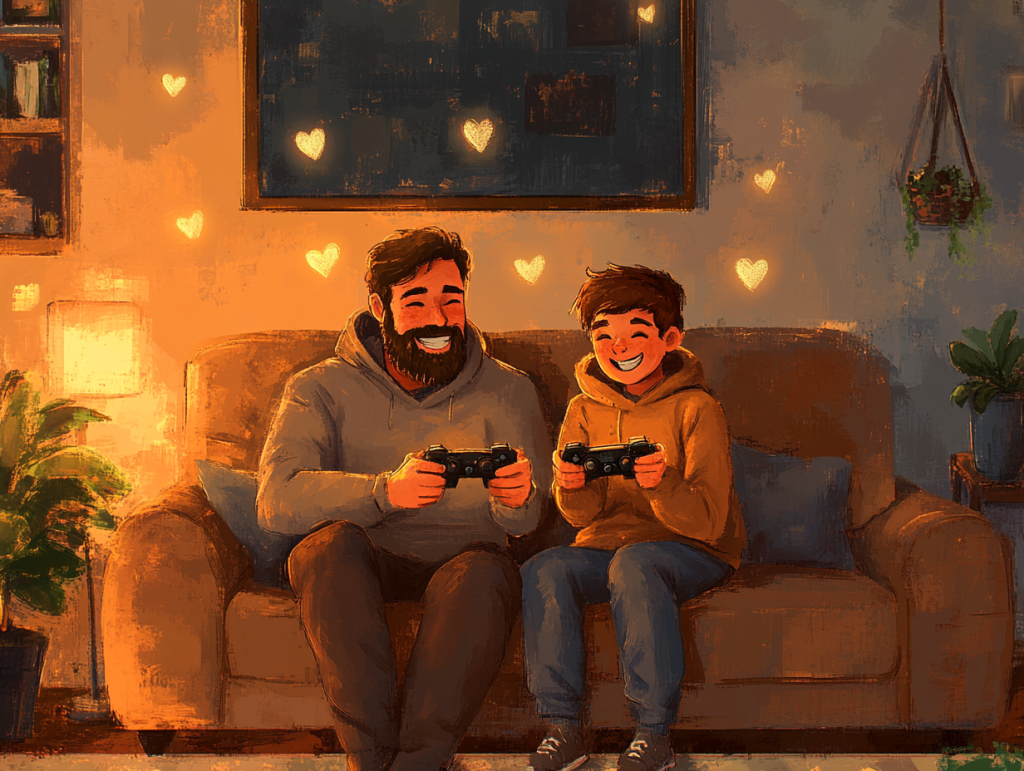The Power of Relationships, One Game at a Time
Foster Care Fortnight 2025 invites us to celebrate The Power of Relationships, those everyday bonds that help children in care feel safe, seen and supported. For Progress foster carer Tom, relationship‑building starts with a games controller as often as it does with a cup of tea.
Tom grew up in care himself. After a stint working in a bank he began volunteering, discovering a passion for being a consistent adult presence in young people’s lives. “I didn’t realise that I could use my own background for positivity,” he recalls. That realisation drew him into residential children’s homes and eventually to fostering with Progress.
Whether he was visiting a boy who moved through five foster placements or helping a four‑year‑old who expressed frustration by head‑butting the floor, Tom learned that expertise matters less than authenticity and consistency. “It’s just trial and error… you’re not going to get it right every time, but you’ll have people to support you,” he says.
Tom has been a gamer since childhood and keeps up with new releases so he can talk knowledgeably and critically about them with the young people he supports. “Gaming is as much a hobby for kids these days as playing football was for us,” he explains. Knowing what’s inside a title like Grand Theft Auto helps him set sensible boundaries: “You don’t want someone playing GTA ten hours a day, but equally you don’t want them doing it behind your back.”
Playing together also dissolves the first‑meeting awkwardness. The night Tom was introduced to one teen they loaded a stick‑man brawler onto the console. Tom won the opening round—“the only game I’m going to beat you at,” the lad groaned—but the shared laughter melted nerves and opened a conversation that would later include school stress, friendships and feelings. Today their Fortnite show‑downs are legendary: the young person’s lightning‑fast building skills versus Tom’s tactical map sense.
Planned transitions, purposeful relationships
Tom’s current placement is a 16‑year‑old who moved from a children’s home to live with him. A one‑page profile highlighted that the boy supports Aston Villa, so does Tom, and that simple common ground kick‑started the transition. Over six weeks they built familiarity through day visits and sleep‑overs. “For the fact that this could be the next four years of his life, three years of his life at my house, that’s not long at all—but it was the right amount of time,” Tom reflects.
Now the pair navigate GCSEs, match days and future pathways together. Tom’s priority is ensuring he leaves with confidence, skills and the knowledge that he always has a home to return to.
Tom believes colleagues from residential care, education and health already possess the relational toolkit fostering demands. “You’re going to share in the success of a young person going from childhood to adulthood, with all the extra stuff they’ve got going on,” he says. Progress’s culture helps, too: it “doesn’t make you feel like just a number—I know my name is known.”
Whether it’s analysing a tricky boss level together or debating which Premier League team will finish top six, Tom turns shared interests into trust, routines into resilience and hobbies into lifelong skills. His story reminds us that the power of relationships often lies in the ordinary moments—a controller passed across the sofa, the triumphant shout after a hard‑fought win, and the quiet knowledge that someone will be there tomorrow, ready to press Start again.
As we mark Foster Care Fortnight 2025, Tom’s message is clear: if you have a spare room, a passion to connect and maybe a favourite game or two, you already hold the most powerful tool a foster child could ask for—a relationship that levels them up for life.




